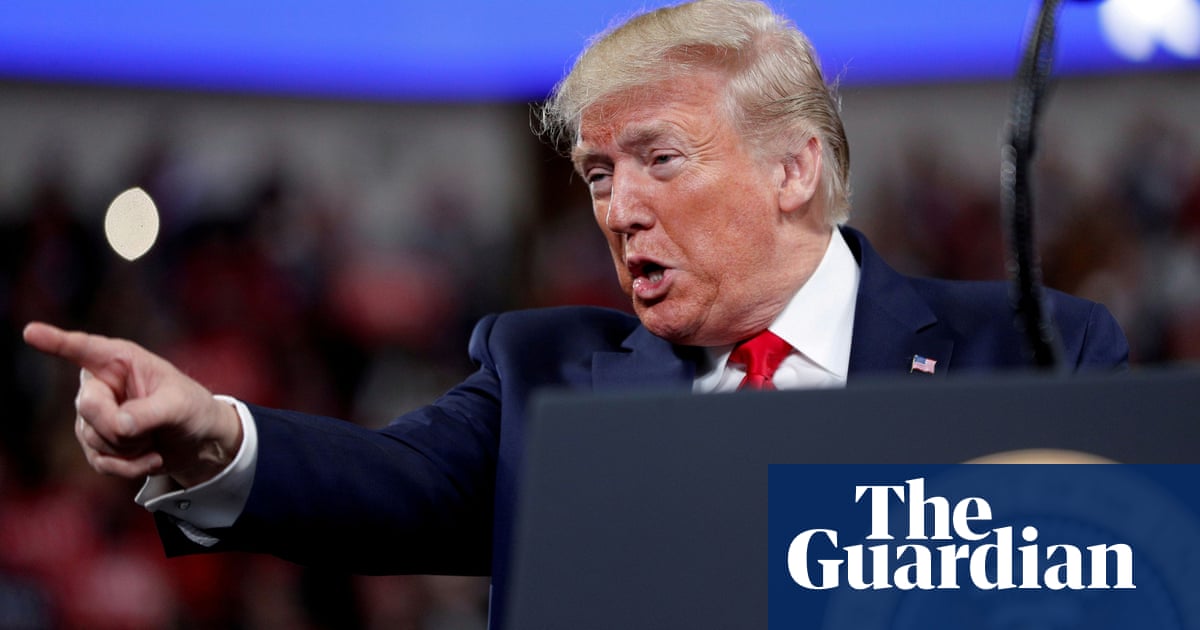Senate foreign relations committee voted unanimously for bill which will now await a slot to go to the Senate

Legislation to stop Donald Trump from withdrawing the US from Nato has been approved for a Senate vote, amid uncertainty over the presidents intentions towards the alliance.
The Senate foreign relations committee on Wednesday voted unanimously for the bipartisan bill which will now await a slot to go to the Senate. Senator Tim Kaine, the draft legislations lead Democratic sponsor, said it was a response to fears that the Trump administration is actively considering withdrawal.
Were aware that it has been seriously debated and seriously considered in the White House at the highest levels, Kaine told the Guardian. Trumps former national security adviser, John Bolton, reportedly warned last month that, if re-elected in 2020, Trump could go full isolationist and withdraw from the 70-year-old North Atlantic alliance.
Kaine predicted his bill to block a Nato withdrawal would gain overwhelming support from the House of Representatives and win a veto-proof majority in the upper chamber of at least 67 votes.
I dont think [Trump] would veto this bill if it came to his desk because of the signal that it would send would be such an unfortunate one, Kaine told the Guardian. It would be seen as so destabilizing by our allies that I dont think he would do it. And furthermore, I dont think the president would veto a bill if he thought hes going to be overridden, and I think he would be overridden on this one.
The bill aims to close a loophole in the US constitution, which requires a two-thirds vote in the Senate to ratify a treaty, but is silent on what it takes to exit a treaty. Kaines bill requires the president to seek the advice and consent of the Senate to pull the US out of Nato. The president would have to notify Congress of any effort taken towards termination of US membership, and any no congressionally mandated funds could be spent on withdrawal. Congressional legal counsel would be authorized to challenge the White House in the courts over any presidential attempt to withdraw.
It specifies clearly, that the the law of the land will now be that a president cannot withdraw from Nato absent a congressional vote, Kaine said. So he could announce he was withdrawing, but that would be an illegal action, and we would feel completely confident that a court would uphold us.
Trump has raised doubt over whether he would order the US to fight if certain Nato allies were attacked, as required by article 5 of the alliances founding document. The president has suggested that collective defence should be made conditional on member states meeting the alliance goal of spending at least 2% of GDP on defence.
At a leaders meeting to mark the 70th anniversary of Nato in the UK earlier this month, Trump defended Nato against criticism from the French president, Emmanuel Macron, but did little to allay fears that he did not fear bound by Natos collective defence obligations.
We may not change Donald Trumps minds about these things. But I think what our allies are looking for is some assurance that the American public still finds value in the alliance, Senator Kaine said. And I think a bill like this, in addition to having some practical effect, would start to answer that question positively.
Constanze Stelzenmueller, the Kissinger chair on foreign policy and international relations at the Library of Congress, said the legislation, if passed, might go some way to steadying European nerves ahead of the 2020 US elections.
For Europeans, its reassuring to know that there is support for Nato in Congress, Stelzenmueller said. But there is also a sense in Europe that if, if there is a second Trump term, then all bets are off. Secondly, the more important issue is how Trump is already changing the world in ways that make Natos work obsolete or impossible.
She added: There is still a strong feeling in Europe that his default attitude to Nato has been a sense that this is a con that attempts to take advantage of America.
Officials from some European Nato members privately voice concerns that, whatever the views of the Congress, a reluctant US commander-in-chief raised doubts over whether the US would come to their defence in a crisis.
Kaine acknowledged that it was a novel dilemma.
Presidents have sometimes wanted to go to war and Congress has said no, but if youve hardly had a situation where Congress was wanting to go to war and a president said no, the Virginia senator said. You could potentially foresee that here, although frankly, my worry about this president is more that he will blunder us into a war we shouldnt be in.
Original Article : HERE ;
from MetNews https://metnews.pw/senate-committee-passes-bipartisan-bill-to-stop-trump-withdrawing-from-nato/
No comments:
Post a Comment